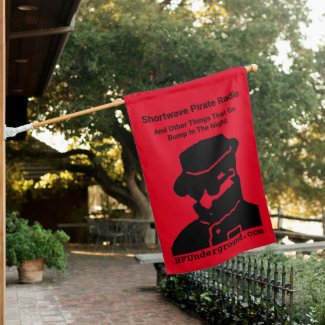Pirate radio - its legacy
http://www.mediauk.com/article/34423/pirate-radio-its-legacyBy James Cridland - posted May 1, 2013. See all James Cridland's articles
What did pirate radio give us anyway - and how long will it survive?
(These are responses to a student's broadcast journalism degree questions. Disagree? That's what the comments box is for...)
How has pirate radio changed since the 60's - and how did pirate radio influence the radio we can listen to today?
The 1960s were a period without any official "pop" radio stations: so pirate radio fulfilled quite a need. Many of them copied the successful top-40 radio formats of the US, and imported them onto the UK airwaves - bringing a welcome sound that was unheard-of to radio listeners. The added 'subversive' nature of these broadcasts were also responsible for their success.
It's claimed that BBC Radio 1 was the government's reaction to the success of these pirates, almost all of which operated outside UK jurisdiction. Radio 1, however, was a part-time service when it started, and suffered for years from a requirement not to play more than five hours of commercially-available music ("needle time") a day: a restriction which, naturally, the pirate radio stations weren't required to adhere to. Nevertheless, pirate radio's influence began to wane with Radio 1's launch.
Some claim that the legalisation of UK commercial radio in the early 1970s was as a direct result of pirate radio activity; others that commercial radio would have happened anyway. Some point to pirate radio being responsible for much of the sound of Radio 1 (many of the network's original presenters were previously pirate broadcasters); others that pirate radio's sound in Europe was simply copied from US top-40 radio anyway.
The growth of commercial radio by the 1980s (and continued success for BBC Radio 1) resulted in many pirate radio stations ceasing operation, and new laws in the mid 1980s were successful in curbing pirate radio further.
Pirate radio in the UK is now not romantically based on a ship - but using transmitters sited at the top of buildings. Many pirate radio broadcasters operate legally as internet radio stations, but, as one industry veteran puts it, the stations "obligingly get re-broadcast on FM by some of their fans". Unlike the 1960s, Ofcom claim that today's pirate broadcasters have links to drug pushers and other illegal operations. A cursory sweep of the dial during a Friday evening in London, however, reveals that Ofcom don't appear to be successful in closing them - as this discussion makes clear.
Pirate radio use in the UK is measured by RAJAR under "other listening", which includes all non-subscriber stations - along with global internet radio and out-of-area stations. 3m people in the UK tune in to "other radio" each week: it has a market share of 2.4%.
While it's fashionable to claim that radio's "pioneers in the ships" are responsible for much of the UK radio landscape today, most involved in this era have now retired. It's certainly true that, in their heyday, pirate radio broadcasters were marketed as massive stars, akin to musicians and actors, featured in teen magazines and mobbed at nightclubs. These stations also undeniably attracted high listening figures. The media landscape has changed considerably, however, and repeated attempts to recreate the sixties radio sound these days aren't successful. Some ex-pirate broadcasters, victims of the recent rationalisation of local radio in the UK, hark back to a golden age of radio, and vehemently criticise those currently in the radio industry. They're right to hark back; but listener requirements have changed, as have audiences' relationships with radio and music.
How does it impact community and commercial radio?
Frequency allocations are worked out carefully by the BBC and Ofcom, so that broadcasters do not interfere with each other (and with other vital services). Pirate radio operators, however, takes no notice of frequency allocations, and simply finds a quiet frequency to start broadcasting on. In many parts of London, some licensed services are interfered with by pirate radio, to a degree that many broadcasters considers is bad for their audience levels.
DAB is unaffected by pirate broadcasting, and some have claimed that the inability for pirate broadcasters to easily broadcast using DAB is part of the radio industry's planned move to DAB-only broadcasting. Others point out that if the licensed broadcasters move away from FM, that'll simply give more frequencies to pirates to broadcast on.
With community and commercial radio, do you think there is still a need for pirate radio?
There's no doubt that community radio fulfils a need that is unmet by traditional mass-market commercial broadcasters. That said, the levels of pirate radio broadcasting show that community radio is having little effect. Additionally, the output of many pirate radio stations would appear to be incompatible with a community radio model, or sit happily with any regulation.
Where do you think pirate radio is heading?
Internet radio, theoretically, allows anyone to broadcast - relatively unencumbered by regulation. Internet radio isn't, however, attractive for radio operators, since it doesn't offer the same kind of return as FM radio does. I suspect that pirate radio will be with us for a long time yet: and if licensed radio vacates the FM band, pirate radio operators will rub their hands together with glee.
James Cridland is the Managing Director of Media UK, and a radio futurologist: a consultant, writer and public speaker who concentrates on the effect that new platforms and technology are having on the radio business.
E-mail James Cridland | Visit James Cridland's website



